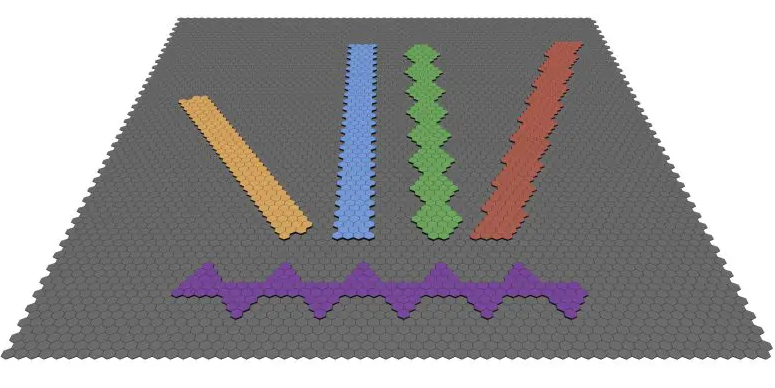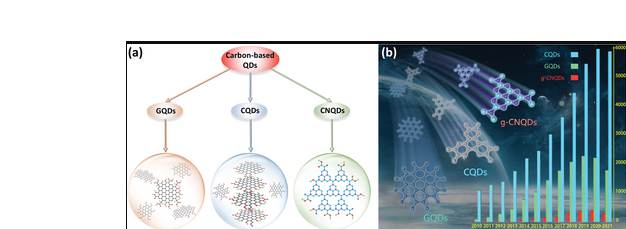In the realm of cutting-edge technology, quantum technology is a frontier that promises to revolutionize computing, communication, and scientific discovery. Within this domain, carbon-based quantum technology has emerged as a fascinating and promising avenue of exploration. This article delves into the world of carbon-based quantum technology, unveiling the nanoscale wonders it offers.
Carbon: The Versatile Element
Carbon, the foundational element of life as we know it, possesses remarkable properties that make it a prime candidate for quantum technology. Its versatility in forming various allotropes, such as graphene, carbon nanotubes, and fullerenes, opens doors to a range of quantum applications.
1. Graphene: A single layer of carbon atoms arranged in a hexagonal lattice, graphene, has captured the attention of researchers worldwide. Its exceptional electrical conductivity, mechanical strength, and thermal properties make it an ideal material for quantum devices.
2. Carbon Nanotubes: These rolled-up sheets of graphene exhibit unique electronic and mechanical properties. They can serve as quantum wires, transistors, and sensors, enabling precise control and measurement at the nanoscale.
3. Fullerenes: Carbon cages like Buckminsterfullerene (C60) offer opportunities for quantum computing and molecular engineering due to their intriguing electronic properties.
Quantum Technology: The Quantum Advantage
Quantum technology harnesses the principles of quantum mechanics, which describe the behavior of matter and energy at the smallest scales. Unlike classical bits that are either 0 or 1, quantum bits (qubits) can exist in a superposition of states, enabling quantum computers to perform certain calculations exponentially faster than classical computers.

1. Quantum Computing: Carbon-based quantum technology leverages the unique properties of carbon materials to create qubits. These qubits can be manipulated and entangled, forming the basis of quantum gates and quantum algorithms. The potential for solving complex problems, like simulating molecules or optimizing logistics, is immense.
2. Quantum Sensing: Carbon-based quantum sensors offer unprecedented precision in measuring physical quantities like magnetic fields and temperature. Applications range from medical diagnostics to environmental monitoring.
3. Quantum Communication: Carbon nanotubes have shown promise in quantum communication due to their ability to transmit and detect individual photons. This could lead to ultra-secure communication networks based on quantum key distribution.
4. Quantum Materials: The study of carbon-based quantum materials is uncovering new states of matter and novel electronic behaviors. This research not only advances fundamental physics but also holds potential for future quantum technologies.

Challenges and Promises
While carbon-based quantum technology holds immense promise, it also faces significant challenges. Controlling and isolating qubits at the nanoscale is no small feat, and researchers are actively working to overcome these obstacles.
1. Qubit Stability: Ensuring the stability of qubits in carbon-based materials is essential for practical quantum computing. Addressing decoherence, where qubits lose their quantum properties, remains a challenge.
2. Scalability: Building large-scale quantum processors with carbon materials requires precise fabrication techniques and control over qubit interactions.
3. Integration: Integrating carbon-based quantum devices with existing technology infrastructure is an ongoing challenge that will determine their real-world impact.
4. Quantum Software: Developing quantum algorithms and software that can harness the power of carbon-based quantum hardware is crucial for realizing the potential of this technology
Unlocking Quantum Horizons
As scientists and engineers continue to unravel the potential of carbon-based quantum technology, several key areas of advancement are on the horizon:

1. Quantum Advantage: Carbon-based quantum technology has the potential to address problems that are currently beyond the reach of classical computers. This includes simulating complex quantum systems, optimizing supply chains, and advancing drug discovery by modeling molecular interactions with unprecedented accuracy.
2. Secure Communication: Quantum key distribution (QKD) based on carbon nanotubes offers a quantum leap in secure communication. Unlike classical encryption methods, QKD relies on the fundamental principles of quantum mechanics, making it theoretically immune to hacking attempts. Carbon-based quantum communication networks could transform data security in sectors ranging from finance to national defense.
3. Healthcare Breakthroughs: Quantum sensors built with carbon materials promise groundbreaking applications in healthcare. They can enable high-precision imaging, detect subtle changes in biomolecules, and enhance magnetic resonance imaging (MRI) techniques. These advancements could lead to earlier disease detection and more effective medical treatments.
4. Energy Efficiency: Quantum computing based on carbon materials has the potential to revolutionize materials science and accelerate the discovery of new materials for renewable energy technologies. This could lead to more efficient solar cells, advanced batteries, and novel catalysts for sustainable energy production.
5. Fundamental Science: Carbon-based quantum materials also offer a playground for fundamental scientific research. Exploring exotic electronic states and quantum phenomena can deepen our understanding of the quantum world and lead to unexpected discoveries.
6. Industry Collaboration: Collaborations between academia, industry, and government institutions are essential to drive carbon-based quantum technology forward. Companies, startups, and research institutions are investing in the development of quantum hardware and software, aiming to bring practical quantum solutions to market.
The Future Awaits

As we celebrate the 25th birthday of Google, a tech giant that has transformed our digital lives, it’s worth noting that carbon-based quantum technology is part of a broader technological revolution. Quantum computing and quantum technologies, in general, are poised to reshape industries, solve complex problems, and unlock new frontiers of knowledge.
While challenges remain on the path to realizing the full potential of carbon-based quantum technology, the progress made to date is remarkable. As researchers continue to explore the nanoscale wonders of carbon materials, we can look forward to a future where quantum-powered innovations become an integral part of our daily lives, from secure communications to advanced healthcare and beyond. The quantum horizon beckons, and carbon-based quantum technology is at the forefront of this transformative journey.
ALSO READ: Google Turns 25 Today. Check Out The Unique Google Doodle And More Easter Eggs




































